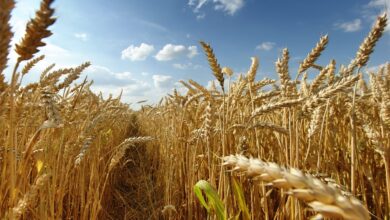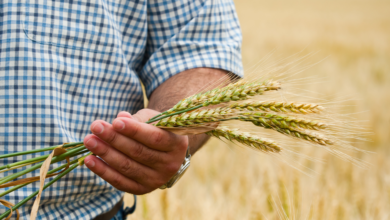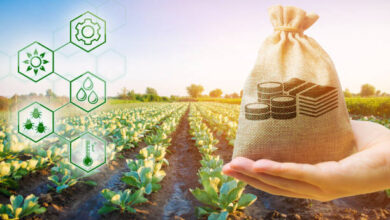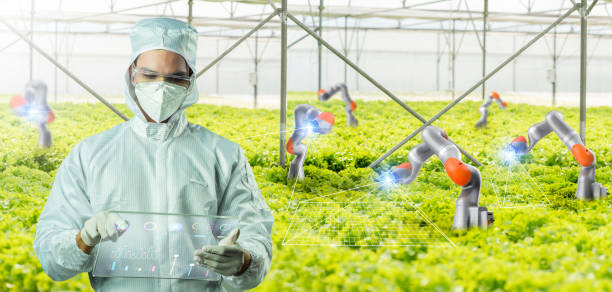
Agriculture technology has come a long way since the days of manual labor and traditional farming methods. With advancements in science and technology, the agricultural industry has seen a significant transformation, making farming faster, stronger, and smarter. From precision farming to automated machinery, the future of agriculture technology holds immense potential to revolutionize the way we grow and produce food. In this blog post, we will explore the latest developments in agriculture technology and how they are shaping the future of farming.
Understanding Agriculture Technology: A Basic Overview
Agriculture technology, also known as AgTech, refers to the use of advanced technologies and innovative solutions in the agricultural industry. It involves the application of scientific principles and engineering techniques to optimize crop production, improve efficiency, and enhance sustainability.
At its core, agriculture technology aims to address the challenges faced by farmers and enable them to grow more food with less resources. It encompasses a wide range of technologies, including precision farming, automation, robotics, artificial intelligence, and biotechnology.
Precision farming is a key component of agriculture technology, which involves the use of data-driven techniques to make informed decisions about farming practices. This includes the use of sensors, GPS technology, and remote sensing to monitor and manage crops. By collecting and analyzing data on soil conditions, weather patterns, and plant health, farmers can optimize irrigation, fertilization, and pest control, resulting in higher yields and reduced environmental impact.
Automation and robotics have also revolutionized the agricultural industry. Automated machinery, such as robotic harvesters and milking machines, can perform repetitive tasks with greater efficiency and accuracy, freeing up farmers to focus on more complex and strategic activities. Additionally, drones have become increasingly popular for aerial surveillance, crop monitoring, and even crop spraying, providing farmers with valuable insights and reducing manual labor.
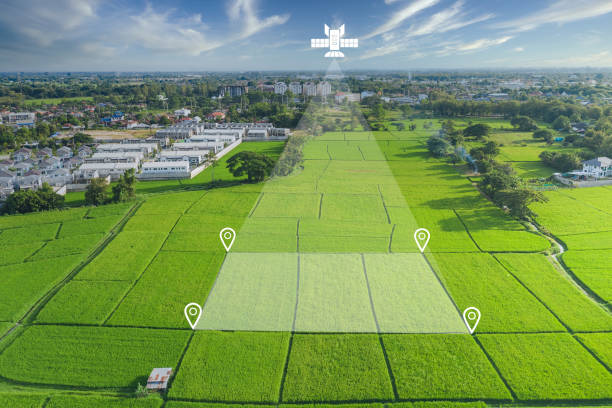
Innovative Technologies Revolutionizing Modern Agriculture
Innovative technologies are revolutionizing modern agriculture, transforming the way we grow and produce food. These advancements are driven by a combination of scientific research, engineering breakthroughs, and a deep understanding of the challenges faced by farmers. Let’s explore some of the game-changing technologies that are reshaping the agricultural industry.
One groundbreaking technology is vertical farming. Traditionally, farming has been limited to vast expanses of land, but vertical farming allows for crop cultivation in vertical stacks or shelves, maximizing space and minimizing the use of resources such as water and pesticides. By using advanced lighting systems and hydroponics, vertical farming creates ideal conditions for plant growth, resulting in higher yields and reduced environmental impact. This innovative approach to farming also brings food production closer to urban areas, reducing transportation costs and carbon emissions.
Another technology making waves in agriculture is gene editing. By manipulating the genetic makeup of plants and animals, scientists can enhance desired traits such as disease resistance, yield, and nutritional content. Gene editing techniques like CRISPR-Cas9 allow for precise modifications, revolutionizing breeding practices and accelerating the development of new varieties that can thrive in changing environmental conditions.
Blockchain technology is also making its mark on agriculture. By creating transparent and secure systems for tracking and verifying the origin and journey of food products, blockchain enables consumers to have complete visibility into the supply chain. This technology helps reduce food fraud, ensure food safety, and support fair trade practices. It also empowers farmers by providing them with a direct and transparent platform to sell their products, bypassing intermediaries and maximizing their profits.
Robotics and automation are rapidly transforming the way tasks are performed on the farm. From autonomous tractors to robotic weeders and harvesters, these machines can perform repetitive tasks with precision and accuracy, freeing up farmers’ time for more strategic activities. Drones are also being used extensively in agriculture for crop monitoring, aerial surveillance, and even crop spraying. These unmanned aerial vehicles provide farmers with real-time data and actionable insights, allowing for more efficient and targeted decision-making.
Innovative technologies are driving sustainable farming practices as well. Precision farming techniques, enabled by sensors and data analytics, help optimize the use of resources such as water, fertilizers, and pesticides. This not only reduces costs for farmers but also minimizes the environmental impact of farming. Smart irrigation systems, for example, use sensors to monitor soil moisture levels and deliver water precisely where and when it’s needed, minimizing water wastage.
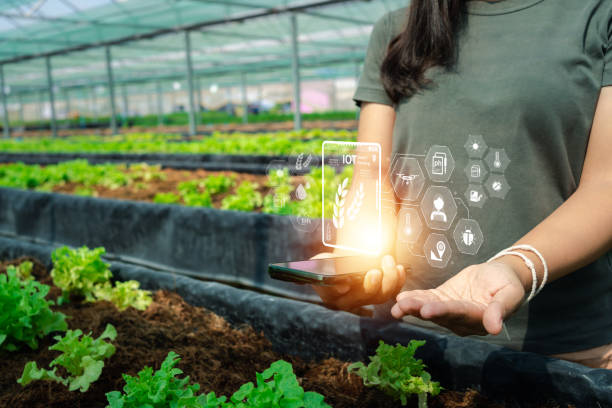
The Impact and Advantages of Using Technology in Agriculture
Agriculture technology has had a profound impact on the agricultural industry, bringing about numerous advantages that are shaping the future of farming. The use of advanced technologies and innovative solutions has revolutionized the way we grow and produce food, leading to increased efficiency, improved sustainability, and enhanced profitability for farmers.
One of the biggest advantages of using technology in agriculture is increased productivity. Precision farming techniques, enabled by data-driven technologies, allow farmers to make informed decisions about their farming practices. By monitoring and managing crops using sensors, GPS technology, and remote sensing, farmers can optimize irrigation, fertilization, and pest control, resulting in higher yields and reduced environmental impact. Automation and robotics also play a significant role in boosting productivity by performing repetitive tasks with greater efficiency and accuracy.
Technology in agriculture also helps improve resource management. Smart irrigation systems, for example, use sensors to monitor soil moisture levels and deliver water precisely where and when it’s needed, minimizing water wastage. By optimizing the use of resources such as water, fertilizers, and pesticides, farmers can reduce costs and minimize their environmental footprint. This promotes sustainable farming practices and ensures the long-term viability of agriculture.
Another advantage of technology in agriculture is increased profitability. By adopting innovative technologies, farmers can streamline their operations, reduce labor costs, and increase their overall output. Automated machinery, such as robotic harvesters and milking machines, allow farmers to focus on more complex and strategic activities, resulting in higher productivity and greater profitability. Additionally, technologies like blockchain provide farmers with a direct and transparent platform to sell their products, bypassing intermediaries and maximizing their profits.
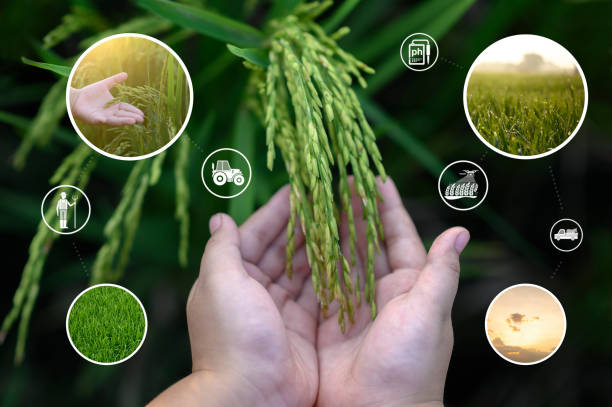
Potential Challenges and Risks in Implementing Agriculture Technology
As with any technological advancements, implementing agriculture technology is not without its challenges and risks. While the future of agriculture technology holds immense potential, there are several factors that need to be considered and addressed to ensure successful implementation.
One potential challenge is the cost associated with adopting agriculture technology. Many of these innovative solutions require significant investment, from purchasing advanced machinery and equipment to installing sensors and data collection systems. Small-scale farmers or those operating in developing countries may struggle to afford these technologies, limiting their access to the benefits they offer. Also, ongoing conservation and updates can also add to the fiscal burden.
Another challenge is the lack of specialized moxie and training. Agriculture technology often involves complex systems and requires a certain level of knowledge and skill to operate effectively. Farmers and agricultural workers may need training to fully utilize the potential of these technologies and make informed decisions based on the data they provide. Providing access to training programs and resources can help overcome this challenge and ensure the successful adoption and implementation of agriculture technology.
Data security and privacy are also important concerns when it comes to agriculture technology. As farmers collect and analyze data on their crops, soil conditions, and farming practices, there is a risk of sensitive information falling into the wrong hands. Cyber security measures need to be in place to protect this data and ensure its confidentiality and integrity. Additionally, clear policies and regulations should be established to govern the collection, storage, and use of agricultural data.
Environmental sustainability is another consideration when implementing agriculture technology. While these technologies aim to optimize resource use and reduce environmental impact, there is a risk of unintended consequences. For example, the increased use of pesticides in precision farming may lead to ecological imbalances and the development of resistant pests. It is crucial to carefully assess and mitigate the potential negative effects on the environment, promoting sustainable farming practices alongside the use of technology.
Lastly, there may be resistance to the adoption of agriculture technology from farmers who are accustomed to traditional farming methods. Changing established practices and embracing new technologies can be met with skepticism and resistance. Effective communication, education, and demonstration of the benefits and potential returns on investment can help overcome this resistance and encourage widespread adoption.
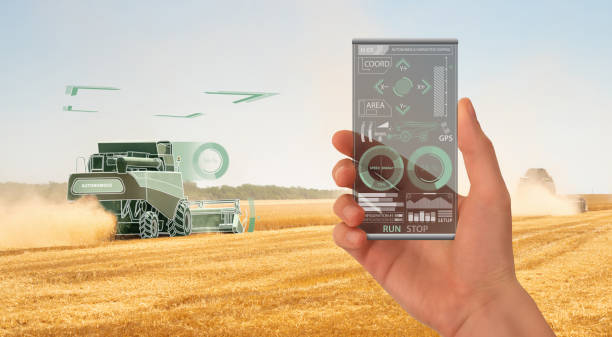
Predictions for the Future of Agriculture Technology
As we look ahead to the future, the potential for agriculture technology to revolutionize the farming industry is staggering. Then are some prognostications for what we can anticipate to see in the coming times
- Increased Integration of Artificial Intelligence: Artificial intelligence (AI) is already being used in agriculture, but we can expect its role to expand significantly. AI algorithms will become more advanced and capable of analyzing large amounts of data to provide valuable insights. This will help farmers make data-driven decisions, optimize farming practices, and increase productivity.
- Expansion of Vertical Farming: Vertical farming, with its ability to maximize space and resources, is gaining traction. In the future, we can expect to see more vertical farms in urban areas, bringing food production closer to consumers and reducing transportation costs. The use of advanced lighting systems and hydroponics will continue to improve, leading to even higher yields and more sustainable farming practices.
- Advances in Gene Editing: Gene editing techniques like CRISPR-Cas9 have already shown immense promise in enhancing crop traits. In the future, we can expect further advancements in gene editing technologies, allowing for the development of crops with increased disease resistance, improved nutritional content, and better adaptation to changing environmental conditions.
- Expansion of Blockchain in Agriculture: Blockchain technology has the potential to transform the way we track and verify the origin and journey of food products. In the future, we can expect to see wider adoption of blockchain in agriculture, enabling consumers to have complete visibility into the supply chain, ensuring food safety, and supporting fair trade practices.
- Greater Focus on Sustainability: As the world grapples with environmental challenges, sustainability will be a key focus in agriculture technology. We can expect to see the development of more sustainable farming practices, including the use of renewable energy, precision farming techniques to optimize resource use, and the adoption of regenerative agriculture practices.
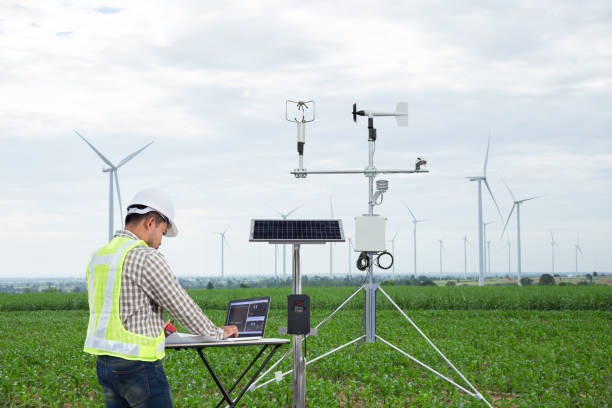
Case Studies – Success Stories in Agricultural Tech Adoption
Agriculture technology is not just a concept for the future, but a reality that is already transforming the agricultural industry. Let’s take a look at some real-life success stories that showcase the power and potential of agriculture technology.
One notable case study is the use of precision farming techniques in California’s Central Valley. Farmers in this region have embraced advanced technologies such as GPS technology, sensors, and data analytics to optimize their farming practices. By collecting and analyzing data on soil moisture levels, weather patterns, and crop health, these farmers have been able to make informed decisions about irrigation, fertilization, and pest control. The result? Increased yields, reduced costs, and improved environmental sustainability. These farmers have seen firsthand the benefits of precision farming in maximizing productivity while minimizing resource use.
Another success story comes from vertical farming pioneers in urban areas like Singapore and Japan. By utilizing advanced lighting systems and hydroponics, these farmers have been able to cultivate crops in vertical stacks or shelves, making the most of limited space. Not only does vertical farming allow for year-round production and faster growth cycles, but it also reduces the need for pesticides and water. These innovative farmers have created self-contained systems that produce high yields of fresh, nutritious food right in the heart of the city.
The adoption of blockchain technology in the agricultural sector is also worth mentioning. In countries like Ghana, blockchain platforms have been used to create transparent and secure systems for tracking the origin and journey of food products. This has not only helped reduce food fraud and ensure food safety, but it has also empowered farmers by providing them with a direct and transparent platform to sell their products. Through these blockchain platforms, farmers have been able to bypass intermediaries and connect directly with consumers, resulting in higher profits and fairer trade practices.
